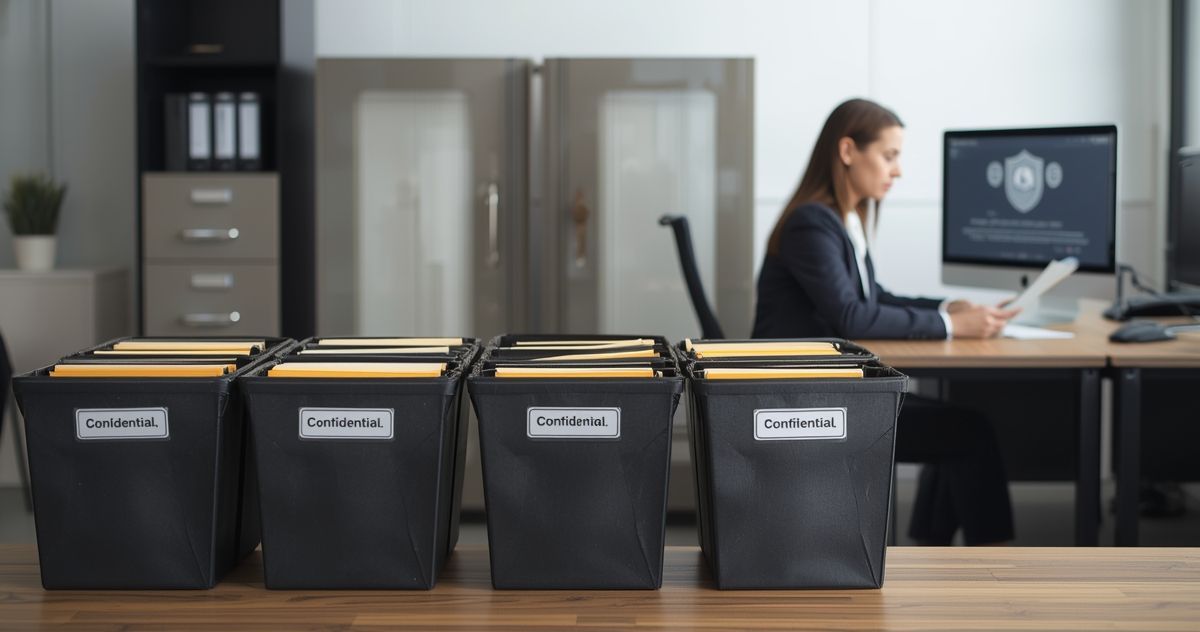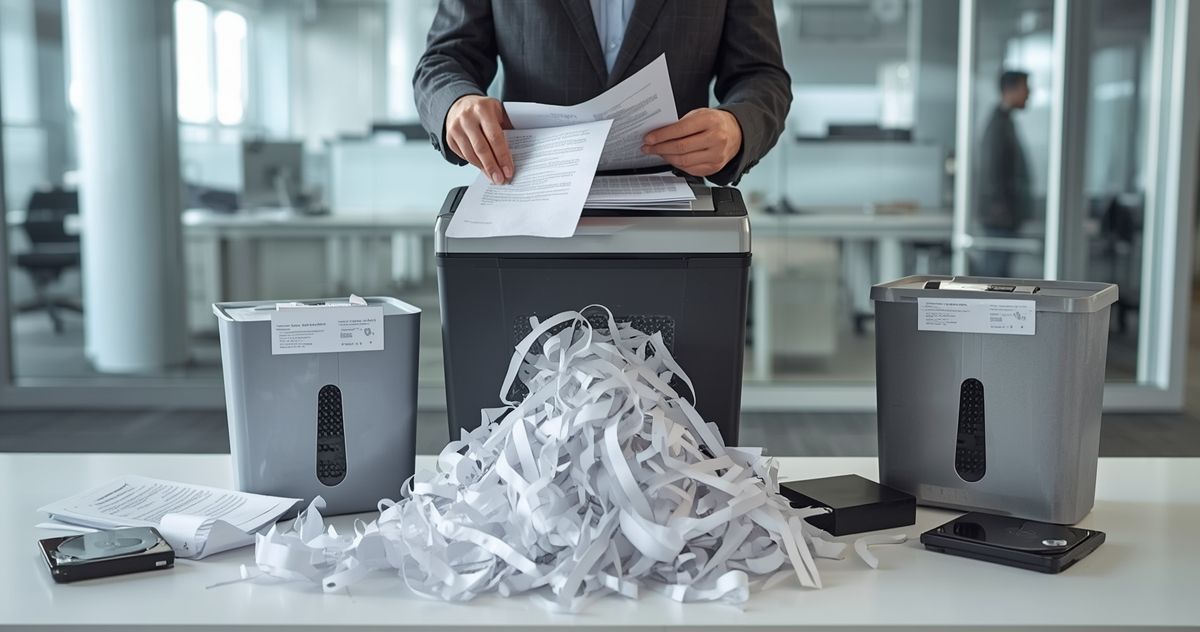Data Destruction Horror Stories (and How You Can Avoid Becoming One)
Data Destruction Horror Stories (and How You Can Avoid Becoming One)
Real-Life Mistakes That Put Businesses at Risk—and How Smart Practices Keep You Safe
When it comes to protecting sensitive information, failing to properly destroy data can turn into a nightmare for businesses. Data breaches, identity theft, and regulatory fines are just the tip of the iceberg. While most companies understand the risks in theory, real-life examples show just how quickly things can go wrong. Learning from these data destruction horror stories can help organizations take preventive steps before they face similar consequences.
Horror Story #1: The Shredding Shortcut
A mid-sized accounting firm decided to save time and money by throwing outdated client files into the dumpster instead of using a secure shredding service. One night, a dumpster diver gained access to the documents, finding sensitive financial information for hundreds of clients. The firm faced lawsuits, lost clients, and severe reputational damage.
Lesson learned: Cutting corners on document destruction services can be costly. Always ensure sensitive files are shredded using certified providers who follow strict security protocols.
Horror Story #2: E-Waste Left Unsecured
An electronics company upgraded its IT systems but failed to properly dispose of old hard drives. The drives, containing confidential client and employee data, were sold to a third-party recycler without proper destruction. The data was later recovered and sold on the dark web, resulting in identity theft and regulatory penalties.
Lesson learned: Secure data destruction isn’t just about paper. Old electronics, including hard drives, USBs, and backup tapes, must be destroyed or recycled through trusted channels to prevent data recovery.
Horror Story #3: Compliance Gone Wrong
A healthcare provider tried to manage their patient records in-house, assuming that shredding outdated files internally was sufficient. Unfortunately, the staff was not trained on compliance regulations like HIPAA, and improper disposal led to a breach that went unnoticed for months. The company faced heavy fines and lost the trust of its patients.
Lesson learned: Regulations such as HIPAA, FACTA, and GDPR require strict adherence to secure destruction practices. Partnering with a certified provider ensures compliance while reducing the risk of human error.
Common Causes of Data Destruction Failures
These stories, while alarming, often share the same underlying issues:
- Lack of professional oversight: Employees may not understand proper procedures or legal requirements.
- Insufficient recycling and disposal methods: Sensitive materials are sometimes discarded without proper destruction.
- Failure to track data destruction: Without documented proof, companies cannot demonstrate compliance or accountability.
- Cost-cutting measures: Skipping certified shredding services or relying on outdated equipment increases risk.
Understanding these pitfalls is the first step toward preventing your business from becoming a cautionary tale.
How to Protect Your Business
Fortunately, these risks can be mitigated with the right approach. Here’s how to ensure safe, responsible, and compliant data destruction:
- Use certified shredding services: Look for NAID AAA-certified providers to guarantee secure disposal.
- Implement a regular destruction schedule: Don’t wait until files pile up; destroy them according to your retention policies.
- Train employees: Ensure staff understand which materials require secure disposal and how to handle them.
- Document everything: Certificates of destruction and chain-of-custody records provide proof of compliance.
- Include electronics in your plan: Hard drives, tapes, and other media must be destroyed or recycled properly to prevent breaches.
By taking these steps, businesses not only protect sensitive information but also reduce environmental impact through
green shredding and recycling initiatives.
Benefits of Proactive Data Destruction
Proper data destruction does more than prevent disasters—it adds value to your business in several ways:
- Reduced risk of data breaches: Secure destruction ensures that sensitive information cannot be recovered or misused.
- Regulatory compliance: Avoid fines and legal issues by adhering to industry standards.
- Environmental responsibility: Eco-friendly shredding and e-waste recycling reduce landfill contributions and support sustainability.
- Improved reputation: Clients and partners trust organizations that take data security seriously.
Conclusion
Data destruction failures can be costly, embarrassing, and damaging to your organization’s reputation. From paper left unsecured to electronic devices improperly discarded, horror stories like these are a reminder that secure destruction is essential in every modern business.
By partnering with a certified provider, implementing a clear destruction policy, and training employees, you can avoid becoming a cautionary tale. Secure, responsible, and eco-friendly document destruction services protect your data, your business, and the environment.
Don’t wait for a disaster to strike—take proactive steps today. Learn more about reliable data destruction services at Data Shredder Corporation by visiting our website.











Share On: